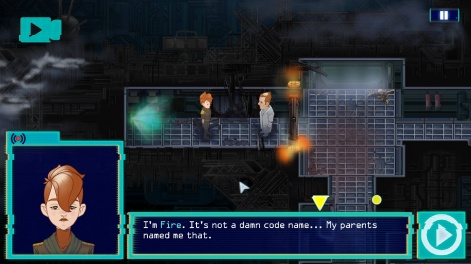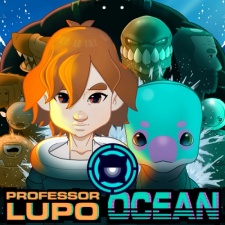With discoverability in the gaming market becoming increasingly difficult by the day, we've decided to shine a light on the many amazing and incredibly interesting indie developers out there.
So welcome to the Indie Spotlight, where on a semi-regular basis a developer will tell us about their life and work, as well as the many challenges facing indie developers in the modern mobile and handheld market.
This week, we spoke to BeautiFun Games studio head Aniol Alcaraz surrounding the development of Professor Lupo: Ocean on mobile and Nintendo Switch.
PocketGamer.biz: How did you get started as an indie games developer?
Aniol Alcarez: That was quite a long time ago! After finishing my degree in video game development, some colleagues and I started the company from there. Our first game Nihilumbra was quite a success, being featured in Apple's 'Game of the Year' for hidden gems.
We believe we made it into the list because we designed it with mobile tactile screens in mind. Back in that day, there weren't as much quality games on mobile as there are now, which helped with standing out on that platform.
For indies, it’s impossible to compete with big freemium games which spend millions in user acquisition every month...Aniol Alcaraz
What is a typical day in your life as an indie?
We have been working from home for a while now, which is quite handy considering you don’t have to move to the office and that saves both time and money. As a programmer, usually, my day consists of opening Unity and typing code. Some days we meet at a co-working space in order to share opinions and organise a bit.
What have been the biggest challenges you’ve faced so far as an indie?
After our first release, we tried to expand and create more games but quickly found that the development phase alongside porting said experience to other platforms was quite difficult = especially in a small team like ours. I would recommend not trying to do various projects at the same time and concentrate on completing one specifically.
How do you define ‘success’?
I would say success is getting to do what you want to do. In our case, that’s making the video games we like, so I’m quite happy with how things are going overall.
What is your opinion of the mobile games market for indies right now?
For indies, it’s impossible to compete with big freemium games which spend millions in user acquisition every month, so you have to try out something different or get into a network who can do that for you.

I personally don’t like the in-app purchase model. When I was young, you would pay for the complete game and that was that however, these times seem to be long gone. We did something in the middle, offering a demo version and a single in-app purchase that unlocks the full game.
Could you tell us about your Professor Lupo: Ocean, and why it felt right for mobile?
Like Nihilumbra, Professor Lupo: Ocean is an adventure puzzle game with 2D grid-based gameplay. This time you wake up at the bottom of the ocean aboard a crumbling spaceship, where you must work alongside a confrontational AI to not only repair the damages but uncover the mysteries surrounding its crew.
The best way we found is just by keeping small while trying to make a decent income by releasing quality games.Aniol Alcaraz
The game is really comforting to play on mobile since all the devices of the spaceship have buttons which can be touched directly with the tactile screen. Since it’s cell-based, it’s also easy to control Clone, the main character. There is no need for joysticks, just click on the cell you want to move and you're away.
How is the studio coping under the current Covid-19 pandemic?
As I mentioned before, we work from home so in that sense it hasn’t affected us much professionally speaking. However, one drawback is that meetings take place completely online.
What are your current plans for the future?
Our current plan is to keep small. It’s difficult for indies to survive nowadays, and the best way we found is just by keeping small while trying to make a decent income by releasing quality games.
If you had an unlimited budget, what game would you most like to make?
Possibly something with an online multiplayer, which is a genre we still haven’t delved into since it requires servers, support and a big user-base. Saying that, I've always played card games and board games, so it would be great to design something similar.
What advice would you give other developers on ‘making it’ as an indie?
I would say aligning with the interests of the platform they are making the game for can go a long way. If you are developing a mobile game, keep an eye on the newest features in the latest devices. If your game utilises these features, it helps big mobile companies to showcase their products.
Also, do something that you like. Making a video game is a very tough procedure, especially getting it over the line. So by doing something that you like, it will be easier to overcome the difficulties that may arise during development.





















